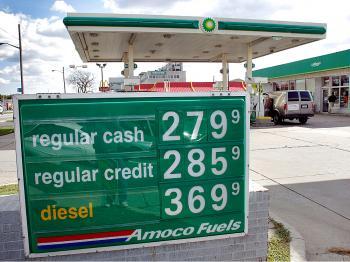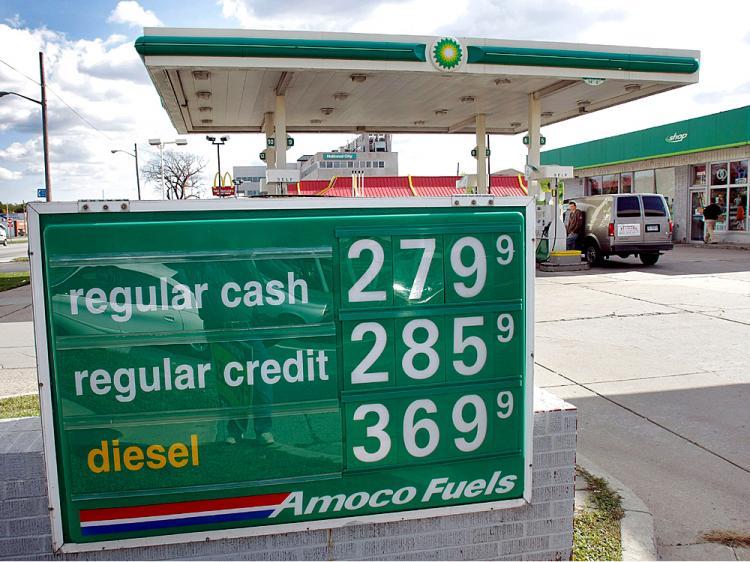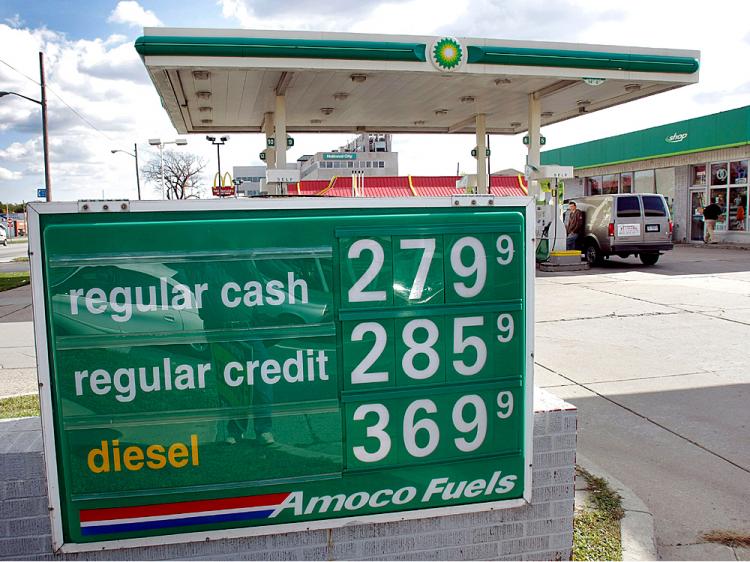Oil Down, OPEC Hawks Expect Supply Cut
OPEC will meet next Friday to discuss possible oil supply cuts.

The cash price for regular unleaded gas for $2.79 is displayed at a BP station October 17, 2008 in Royal Oak, Michigan. Bill Pugliano/Getty Images
|Updated:





